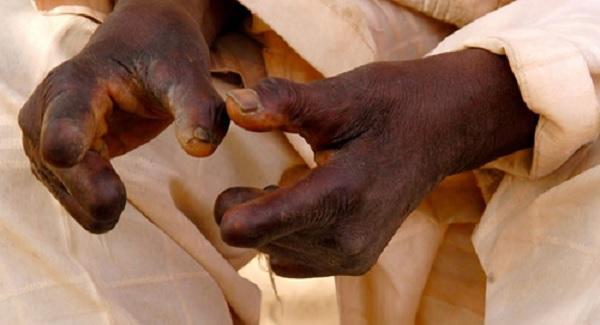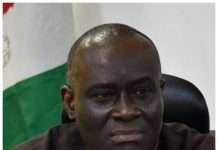
The World Health Organisation (WHO) has drawn the attention of governments to the plights of people living with leprosy and danger inherent in ignoring screening activities and treatment of the disease, especially in a pandemic, as it can lead to irreversible physical impairment.
Leprosy, or Hansen’s disease, is a curable infectious disease caused by the bacillus M. leprae. Experts have revealed that the disease is difficult to contract and most people will never develop it even if exposed to leprosy bacilli. Its incubation period is said to be between 5 years, while symptoms can take 20 years to appear and it mainly affects the skin and peripheral nerves.
Marking the World Leprosy Day on Monday, the apex health institution critically analysed the vulnerability of persons infected with leprosy in a pandemic, saying many of them were severely affected by the lockdown which prevented them from accessing treatment and care, deprived them of income-generating opportunities, and exacerbated the deprivations their marginalised communities already faced.
In a statement by Yohei Sasakawa, WHO Goodwill Ambassador for Leprosy Elimination, he called on governments and healthcare practitioners across the globe to rally support for people with the condition, in order to prevent unnecessary impairment on people’s lives.
Citing WHO’s report on the condition as published in September 2021, he disclosed that there was only 37% drop on in new cases from the previous year, which implies a disruption in healthcare services to leprosy patients as occasioned by COVID-19.
According to him:” This is evidence that, in many countries, measures against leprosy, including case detection and treatment, have been disrupted by the pandemic. Delays in detecting and treating cases can lead to irreversible physical impairment, so it is essential that these services continue. That is why I have been seeking the support of government officials and health professionals for the “Don’t forget leprosy” campaign”.
Nigerian scientists have also expressed similar concerns regarding the management of the disease in the country, though with a downward prevalence trend, they asserted that patients are finding it difficult to access treatment and care due to lack of adequate provision and limited number of practitioners to attend to them.
In a study published on Research Gate, conducted by Sunday Udo, from The Lerosy Mission, Nigeria; Joseph Chukwu; and Olusegun J Obasanya, Federal Ministry of Health, Nigeria, they found that “With an annual new case detection of 4000 people, a Grade 2 disability rate of 12%, and nearly 10% child ratio among new cases, leprosy remains a disease of public health importance in Nigeria.
“Faced with the reality of low endemicity; a declining budgetary allocation to leprosy control; and a pervasive loss of expertise; it is necessary for Nigeria to re-organise its leprosy control services to further reduce the burden of the disease and ensure quality care to people affected by leprosy”.
Still on the Nigerian situation, the National Co-ordinator, VOHAF, Franca Emekobun, in a chat with pressmen recently also mentioned barriers to care for people living with the disease. She said mistaken beliefs about the disease as being highly contagious, a taboo, hereditary and heaven’s punishment as the greatest challenge of people living with the disease, adding that prevention and treatment through early detention prevents deformity, which ultimately stops discrimination.
She emphasized that indigent leprosy patients remained citizens and should not be denied access to good health facilities, education and safe environment.
In ending these challenges, Sasakawa urged persons affected by leprosy to rise against the trend and get involved in making use of their experience and knowledge. It is also important that they are active on social media and speak out against discrimination
He said :“We are the only creatures on earth that have been given the ability to reason. Let us use our reason to confront the stigma that persons affected by leprosy face, cure society of the disease of discrimination and stop repeating the mistakes of the past”.










